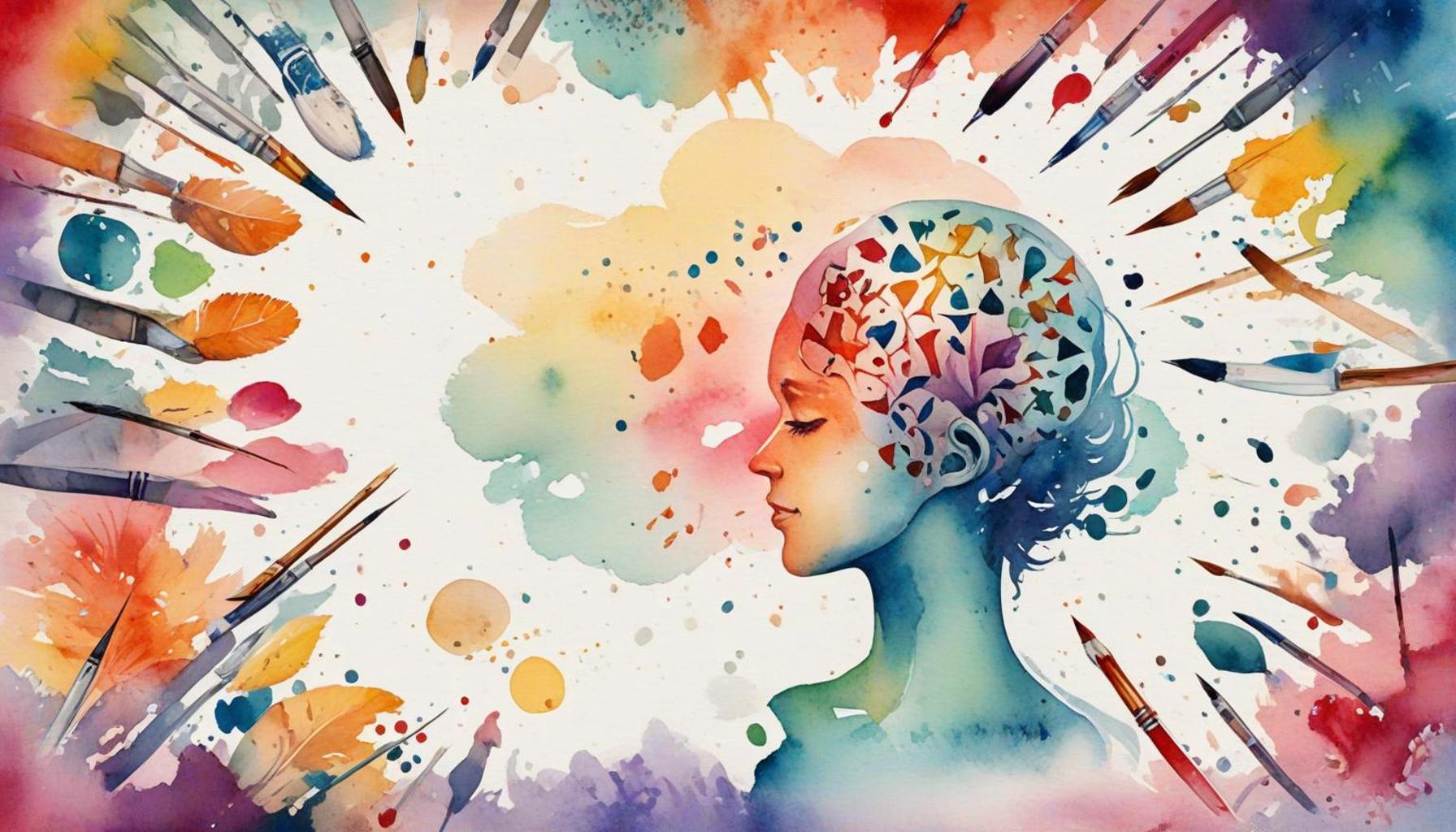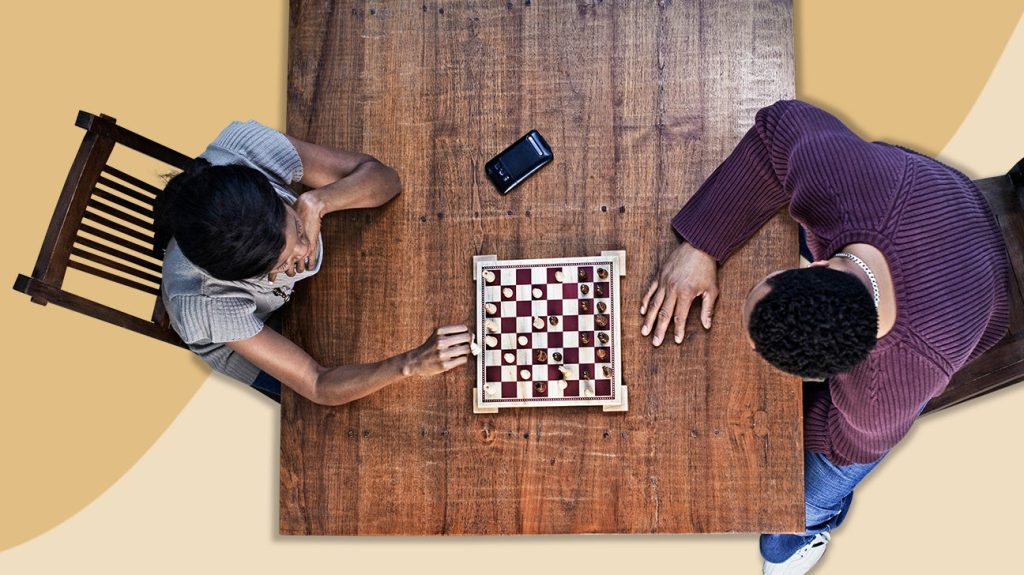Mind Games as a Self-Development Tool Boost Personal Growth

The Power of Mind Games
In today’s fast-paced world, where the demand for personal growth and self-improvement is at an all-time high, exploring mind games can be a transformative experience. These engaging activities not only entertain but also enhance cognitive abilities, emotional resilience, and creative problem-solving skills, paving the way for individuals to unlock their true potential.
Mind games come in various forms, each designed to challenge different aspects of our thinking. Some examples include:
- Brain Teasers: These puzzles often require lateral thinking and offer surprising solutions that enhance problem-solving skills. For instance, riddles can sharpen one’s analytical abilities, teaching individuals to look beyond the obvious.
- Puzzles: Jigsaw puzzles, Sudoku, and crosswords improve critical thinking and attention to detail. These activities encourage individuals to think strategically and methodically, providing a sense of accomplishment upon completion.
- Role-Playing Games: Popular in many parts of the world, these games simulate real-life scenarios, allowing participants to practice life skills such as negotiation, empathy, and teamwork. They serve as a safe environment to explore emotional intelligence and interpersonal dynamics.
In Nigeria, where the competition for academic and career success is intense, engaging with mind games can serve as not only a means of entertainment but an essential tool for personal growth. For example, many young Nigerians are participating in online trivia competitions that not only test their knowledge but also enhance their cognitive skills. Engaging in these activities can lead to significant benefits, such as:
- Enhancing Cognitive Skills: Regular practice through mind games exercises the brain, helping to boost memory retention and focus. As an illustration, engaging in memory games can significantly improve recall abilities, which is advantageous for students facing examinations.
- Increasing Emotional Intelligence: Through activities that require reflection and self-analysis, individuals can better understand their emotions and how they interact with others. This self-awareness is crucial in both personal and professional settings.
- Fostering Social Connections: Many mind games involve teamwork and cooperation, encouraging individuals to build relationships. Collaborative games can be found in community centers where people gather not just to play but also to connect with each other, thereby strengthening social bonds.
As we venture deeper into this subject, it is vital to appreciate that mind games are not just simple entertainment: they are powerful tools for self-development. With numerous available options, including mobile applications and community-based initiatives, these games can catalyze one’s personal growth journey—offering a fun and engaging way to sharpen not just the mind, but also life skills that are essential in today’s dynamic environment.

CHECK OUT: Click here to explore more
Unlocking Potential Through Strategic Thinking
Mind games serve as a dynamic platform for individuals seeking to enhance their cognitive abilities and personal growth. These interactive exercises encourage participants to engage in complex thought processes, leading to the development of critical thinking skills that can be applied in various aspects of life. In a world where rapid change and constant adaptation are required, honing such skills has never been more crucial.
One of the key benefits of mind games is their capacity to improve problem-solving abilities. Engaging with strategic games like chess or online simulations fosters decision-making skills. As players navigate various challenges, they become proficient in evaluating options, anticipating outcomes, and executing strategies efficiently. This analytical approach can translate well into academic and professional settings, allowing individuals to confront issues with confidence and ingenuity.
Furthermore, mind games often emphasize the importance of patience and perseverance. For instance, solving a challenging puzzle requires time and a systematic approach. In Nigeria, games like Ludo or checkers not only provide a leisurely way to pass the time but also teach players that setbacks and failures can lead to eventual success if approached with determination. This mindset is invaluable, especially in a competitive atmosphere where resilience can make a significant difference.
Another critical area where mind games contribute to personal growth is within the realm of social awareness and teamwork. Many popular mind games, including role-playing games (RPGs), involve collaboration and communication with others. These experiences allow players to navigate social dynamics, recognize diverse perspectives, and develop empathy—traits that are essential in today’s interconnected world.
- Collaboration: Most mind games require participants to work together towards a common goal, helping to build interpersonal relationships.
- Active Listening: Engaging with others in strategic discussions enhances the ability to listen and respond thoughtfully.
- Conflict Resolution: Mind games often present challenges that necessitate negotiation and compromise, crucial skills in both personal and professional realms.
Importantly, the psychological aspect of mind games cannot be overlooked. Engaging in these activities promotes a sense of achievement and boosts self-esteem. Completing a complex puzzle or successfully executing a strategy elevates confidence levels, reinforcing the belief that individuals can overcome obstacles. This cycle of challenge and triumph propels individuals towards continuous improvement, encouraging them to tackle greater challenges beyond the confines of the game.
As participants immerse themselves in the world of mind games, they may discover that the skills they develop transcend the boundaries of the playing field. Whether through enhancing cognitive abilities, fostering teamwork, or instilling resilience, mind games emerge as a multifaceted tool for personal growth and self-development. By leveraging these interactive experiences, individuals in Nigeria and beyond can embark on a fulfilling journey of self-discovery and skill enhancement that will contribute to their overall journey toward success.
Harnessing Mind Games for Personal Growth
In the realm of self-development, mind games serve as potent tools to enhance cognitive abilities and nurture emotional intelligence. Engaging in these games not only sharpens your problem-solving skills but also stimulates creativity, allowing individuals to approach challenges with innovative perspectives.
Research highlights that mind games can significantly boost one’s mental agility. This heightened mental flexibility facilitates a stronger ability to adapt to various life situations, ultimately driving personal growth. Furthermore, these games foster a sense of achievement as individuals improve their skills over time, reinforcing their self-efficacy and confidence.
The social aspect of mind games shouldn’t be overlooked either. Cooperative mind games encourage teamwork, communication, and conflict resolution skills, essential components of successful personal relationships and professional life. Engaging in joint problem-solving activities with others cultivates a sense of community and provides the opportunity for shared learning experiences.
Moreover, mind games can be incredibly therapeutic, acting as a stress-relief mechanism. As players immerse themselves in strategic thinking, they often experience a meditative state that can alleviate anxiety and enhance overall well-being. This contributes to a more balanced and fulfilling life, reinforcing the idea that mental exercises are vital for nurturing both the mind and the spirit.
Thus, embracing mind games as a self-development tool not only accelerates personal growth but also enhances various life skills essential for navigating today’s complex world.
| Category | Advantages |
|---|---|
| Cognitive Development | Enhances problem-solving capabilities and fosters creativity. |
| Emotional Intelligence | Boosts self-awareness and improves interpersonal skills. |
| Stress Relief | Offers therapeutic benefits through mental engagement. |
| Social Skills | Encourages teamwork and effective communication. |
The exploration of mind games as a self-development tool opens up opportunities for anyone looking to enhance their personal growth journey. Join the many who are already experiencing the transformational benefits these games provide.
CHECK OUT: Click here to explore more
Nurturing Creativity and Innovation Through Mind Games
Beyond honing analytical skills, mind games are also a powerful catalyst for creativity and innovation. In an increasingly competitive landscape, the ability to think outside the box is invaluable. Engaging in mind games like Sudoku or crosswords encourages players to explore unconventional problem-solving techniques, stimulate imagination, and cultivate fresh perspectives. In Nigeria, where innovation is essential for growth in various sectors, these cognitive exercises become even more pertinent.
Mind games often require a high degree of adaptability, pushing players to adjust their strategies in real time as new variables come into play. For example, when playing a game like Monopoly, participants must navigate changing circumstances, often employing creative tactics to secure victory. This adaptability nurtures an open mindset and encourages individuals to embrace change—an essential trait in an era characterized by rapid technological advancements and evolving industries. As people learn to navigate uncertainties within a game, they unwittingly develop the agility needed to tackle modern workplace challenges.
Additionally, the act of creating strategies in mind games serves to fuel imagination. Players are often required to envision multiple scenarios and outcomes, developing a unique mental landscape that enhances their creative reservoir. For instance, in role-playing games (RPGs) like Dungeons & Dragons, participants not only shape characters and narratives but also devise creative solutions to complex dilemmas within the game’s universe. Such immersive experiences allow individuals to stretch the limits of their imagination, which can be particularly beneficial in creative fields like marketing, design, and entrepreneurship.
The impact of mind games on goal-setting and planning should not be underestimated. Successful gameplay often hinges on effectively setting objectives and developing plans to achieve them. For example, strategies in games such as Scrabble require players to prioritize their moves and consider their long-term implications on the game’s outcome. This conscious approach to planning and foresight can be directly transferred to real-life situations where setting clear goals and mapping out a path toward achievement is critical.
- Mindfulness: Many mind games encourage players to be present and focused, fostering a state of mindfulness that can enhance overall well-being.
- Risk Assessment: Players routinely evaluate risks and rewards within games, developing their capability to assess situations in varying life contexts.
- Growth Mindset: Engaging with challenging games fosters a growth mindset, where individuals learn to view failures as opportunities for learning and improvement.
Moreover, the social aspect of mind games contributes significantly to a sense of community and belonging. In Nigeria, where traditional games like Ayo continue to thrive, such interactions foster relationships and cultural ties while building essential life skills. Engaging in mind games in a group setting promotes healthy competition, stimulates discussions, and strengthens community bonds, offering a platform for shared learning experiences.
As individuals delve deeper into the rich world of mind games, they often find that the boundaries between play and real life begin to blur. The cognitive, creative, and social skills acquired through these activities form the foundation for a well-rounded personal development journey, paving the way for holistic growth that extends far beyond the gaming table.
SEE ALSO: Click here to read another article
The Transformative Power of Mind Games in Personal Growth
In conclusion, mind games stand as a compelling self-development tool that significantly boosts personal growth across multiple dimensions. By engaging in these cognitive challenges, individuals in Nigeria and beyond cultivate not only essential analytical skills but also foster creativity, adaptability, and strategic thinking. The importance of this mental exercise cannot be overstated in a rapidly evolving world where innovation is key to progression.
Moreover, the social interactions derived from playing traditional mind games promote community bonding, enhance communication skills, and foster a sense of belonging. These elements are crucial, particularly in societies rich with cultural heritage, where games act as a bridge between generations, imparting wisdom and life skills. As one navigates the intricate layers of strategy and problem-solving inherent in these games, they inadvertently develop a growth mindset—an attitude that embraces challenges and sees setbacks as opportunities for learning.
As we embrace the blend of play and self-improvement, we realize that mind games are more than mere entertainment; they are a pathway to enhanced cognitive abilities and personal evolution. Individuals who actively engage with these challenging yet enjoyable activities position themselves not only for success in their careers but also for a more enriched and fulfilling life. To reap these benefits, one need only to begin the journey of exploring the diverse world of mind games, unlocking the potential that lies within and beyond their gaming experience.


